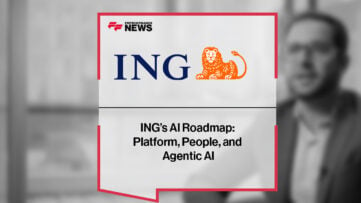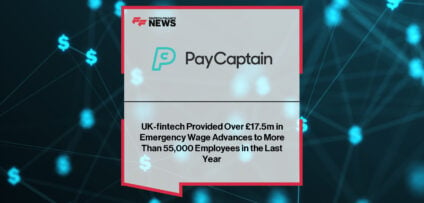Breaking News

EXCLUSIVE: “We can’t get no satisfaction!” – Ron Delnevo, The Payment Choice Alliance in ‘The Fintech Magazine’
Ron Delnevo, Chair of The Payment Choice Alliance, considers the UK Treasury’s policy statement on cash access and questions why the wishes of 50 million Brits are being ignored
How much attention have UK banks really paid to customer satisfaction over the years?
Back in the Swinging Sixties, when Simon and Garfunkel were famously singing about how to ‘keep the customer satisfied’, the Conservative government passed a law that allowed employers to pay their workers’ wages into bank accounts, rather than paying them in cash.
No worker asked for this. It meant that instead of getting cash, usually every Thursday, from their boss, they now had to go to a bank branch to get it. Bank branches were open a mere six hours a day, weekdays only; they didn’t unlock their doors until most people were already at work; they closed before most people had finished their daily toil; they were shut for lunch… and there were no ATMs when the Act was passed in 1960.
Conservative finance minister Ted Heath’s ‘small but important measure’, as he called it, did less than nothing for the average worker but it suited big business, which suddenly had its hands on ordinary people’s money and those customers could only get it back when it suited the banks. Having made cash less convenient, banks exploited a shortage they had helped manufacture by launching credit cards in 1967. The public didn’t request this innovation, either, and largely ignored it, even when the cards were launched with massive publicity. They only succumbed to this plastic ‘revolution’ when millions of letterboxes, giving recipients unasked-for credit of £100 or more.
That was the start of UK credit card debt, which, by 2020, had reached a staggering £72billion – or around £1,200 for every woman, man and child. Debit cards, on the other hand, were a great idea for customers, because they allowed convenient access to current
account funds. But debit cards didn’t appear in the UK until 1987 – an astonishing 21 years after an American bank produced the first one in 1966 – and 20 years after ATMs were installed, although they didn’t use debit cards initially, but rather a voucher punched with holes, representing a customer’s PIN.
It took UK banks until 1998 to install 25,000 ATMs, averaging 800 installations a year over a 30-year period. It wasn’t until the independent ATM operators came into the market and started installing machines at a rate of 3,000 a year that cash became convenient again for long-suffering Brits. Meantime, UK banks became engulfed in the Payment Protection Insurance scandal, which has since seen them pay out more than £50billion compensation to far-from-satisfied customers.
By the turn of the Millennium, the branch closure programme that had started in 1990 was continuing apace and the banks were focussed on ‘casino’ banking, getting involved in 100 per cent-plus and sub-prime mortgage lending, ultimately helping bring about the Global Financial Crash of 2008/9. This, of course, brought many of the banks themselves to their knees, and UK taxpayers rescued them to the tune of £133billion.
The impact of the collapse continues to be felt today, with NatWest still more than 30 per cent owned by us. As someone who has been a leading player in financial services in the UK for 25 years, though thankfully never working for a bank, I can tell you that at every turn, banks have blocked innovations that did not suit their narrow perceived economic objectives. For example, when I was an elected director of the UK Payments Council, the question was rightly raised about making bank account numbers as moveable as mobile phone numbers.
By that stage, every mobile phone network operator was allowing customers to keep their numbers when switching operators. A hugely important step in keeping the mobile phone customer satisfied, it was something banks could and should have done for their customers.
“Cash access in many UK towns has declined by 90 per cent or more”
Did it happen? No. Too difficult, said the banks. Too expensive, said the banks. Compared to what, you might ask?
The £50billion banks paid out in PPI compensation? The £137billion taxpayer-funded bank support package?
I could provide an extensive list of innovations that have never been made by the UK’s so-called ‘high street’ banks, which definitely could have improved satisfaction for customers. But, a bit like The Rolling Stones, we couldn’t get any, either. As the banks continue their retreat from the UK high street, various over-long pilot schemes have been run to work out how thousands of communities could be saved from becoming financial services ‘deserts’. Right or wrong, it was decided that ‘bank hubs’ should be created, staffed by a different bank each day and with basic banking services provided by the Post Office.
The banks even eventually set up a not-for-profit company called Cash Access UK Limited, intended to oversee the launch of bank hubs. The first was created well over two years ago – but by July 2023, there were still only six in operation. Estimates vary as to how many bank hubs will be required to even make a dent in avoiding financial services deserts – some experts believe a minimum of 2,000, given the scale of bank branch closures. What is known for certain is that at least one community has been waiting for two years for the hub they were promised.
Dozens more are in a queue that is getting longer every week.
NatWest has promised to keep branches that have been earmarked for closure open for another 12 months so that Cash Access UK can get its act together. The overriding appearance, however, is one of systemic procrastination, in the hope that lack of progress will ultimately mean very few bank hubs are ever opened and, of course, that the country rushes towards becoming ‘cashless’.
The latest Financial Services and Markets Bill – the 2022 edition – finally received Royal Assent in July 2023. The Act now gives HM Treasury massive authority to impose standards for cash access, a term used in the Act to include both withdrawal and deposit facilities. However, it say absolutely nothing about cash acceptance by businesses, which is becoming a major issue in many parts of the UK.
One concern about the Treasury’s increased role in cash access is that, in the last few years, it has constantly used the word ‘reasonable’ to describe what cash access is needed by the UK public. In the meantime, cash access in many UK towns has declined by 90 per cent or more, even though in 2023 the UK public continue to withdraw from ATMs 75 per cent of the value of cash they were withdrawing pre-pandemic. The strength of the British public’s commitment to cash was underlined in a recent YouGov/Payment Choice Alliance Survey (June 2023), which found that only three per cent of UK adults never use cash.
Which, of course, means that more than 50 million British adults do. Sadly, the HM Treasury policy statement issued in August did absolutely nothing to guarantee convenient cash access for either the public or businesses. The statement did not even mention ATMs – which provide more than 90 per cent of the cash currently used by the British public.
It seems that the Treasury intends that the vast majority of cash access will, in future, be provided by limited-hour Post Office counters. Only 1,500 of the UK’s 11,500 Post Offices actually have Post Office ATMs, so the Treasury clearly doesn’t foresee 24/7 cash access. The Financial Conduct Authority (FCA) is to enforce the measures outlined in the Treasury statement, but, in truth, there is nothing much to enforce. In any community with a Post Office, banks can probably go on closing their branches and ATMs, as the FCA will view what is offered by the Post Office as ‘reasonable’ cash access.
It is very doubtful the British public will agree with this FCA assessment. In early July 2023, Chancellor Jeremy Hunt announced a Future Of Payments Revie, to be chaired by Joe Garner, an ex-CEO of Nationwide Building Society. Garner’s mission – and he has chosen to accept it – is to report on how payments will be made in future and the steps needed to deliver world-leading retail payments in the UK. Garner is due to report to the Chancellor in the Autumn of 2023.
If, between them, HM Treasury, Garner and the FCA are judged to have failed the British public in relation to cash access by not enshrining the right to use cash for payments in UK law, the subject might become an issue in the 2024 UK General Election. Can any government hope to be elected while ignoring the wishes of the vast majority of the British public – 50 million plus voters – who say they want to go on using cash?
We may find out in 2024 who truly wants to ‘keep the customer satisfied’. But, for now, for anyone who wants to use cash in the UK, regrettably it’s The Rolling Stones’ refrain that’s ringing in our ears.
This article was published in The Fintech Magazine Issue 29, Page 48-49
People In This Post
Companies In This Post
- Bluefin and Basis Theory Partner to Enable Unified Tokenization Across Digital and In-Person Payments Read more
- Invest Bank and AUTON8 Build Partnership to Drive Digital Resilience and Banking Agility Read more
- ING’s AI Roadmap: Platform, People, and Agentic AI Read more
- UK-fintech Provided Over £17.5m in Emergency Wage Advances to More Than 55,000 Employees in the Last Year Read more
- TreviPay Announces AI-Powered Growth Center to Help Enterprises Predict Buyer Behavior and Drive B2B Sales Read more


















